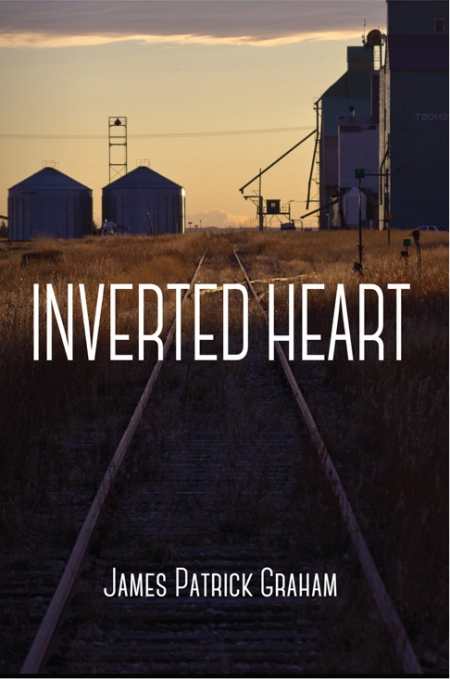Inverted Heart
The beauty of this book is in its celebration of the mundane and examination of life experiences that feel both personal and universal.
James Patrick Graham’s Inverted Heart follows Mike Burke, an unexceptional but likable boy from the American Midwest, as he battles through a long series of small successes and minor disappointments. The word play, rich scenery, and archetypal situations give the book a warm and comfortable tone.
Set in Smithton, Illinois, the story is replete with the friendly characters, small talk, and slow pace of life to be found in small towns across the country. Mike relives his childhood while he is driven through town toward the police station after an unexplained arrest. The author’s love of the area is made clear through his unhurried description and exceptional detail. Between the lines of the main story, there are warm sketches of Americana, like Mike playing with his friends in the yards of his neighborhood as a child, and later navigating the hardships of high school. The beauty of the book is in its celebration of the mundane and examination of life experiences that feel both personal and universal.
Mike grows from a shy boy playing with friends to an awkward high school student, mediocre at sports, who gets through life by keeping his head down. He develops into a conscientious and polite young man with a strong work ethic and sense of community. When tragedy pulls his life down around him, the town wakes up to realize how easily bad things can happen to good people. It is a story full of the blunders of adolescence and the realities of growing up.
Most of the book avoids a linear narrative and instead shows Mike’s life through a series of chronological, but largely unconnected, vignettes. While each stands on its own, together they paint a picture of a character who seems to float through life with the best of intentions. Each scene helps unravel Mike’s personality. However, without a straightforward narrative, his motivations remain unclear.
The author shows a distinct love of language through floral descriptions and subtle observations, and the unusual chronology has plenty of potential. However, the book often feels overwritten, with unimportant details drawn out in lengthy prose and tangents explored to the detriment of the main story line. For example, early on, Mike and his father visit Walmart, where they witness an attempted theft. The intent of this scene seems to be to examine Mike’s first experience with crime, though without a clear reaction from the protagonist, the message is lost. The book would also greatly benefit from the removal of lingering typos and continuity errors that made it to print.
While the novel’s premise about a boy growing up in an average American town holds merit as a mirror of everyday life, it meanders around its point. Though not for everyone, readers with a penchant for Americana will enjoy the book’s detail and unique plot structure.
Reviewed by
Eric Anderson
Disclosure: This article is not an endorsement, but a review. The publisher of this book provided free copies of the book and paid a small fee to have their book reviewed by a professional reviewer. Foreword Reviews and Clarion Reviews make no guarantee that the publisher will receive a positive review. Foreword Magazine, Inc. is disclosing this in accordance with the Federal Trade Commission’s 16 CFR, Part 255.

